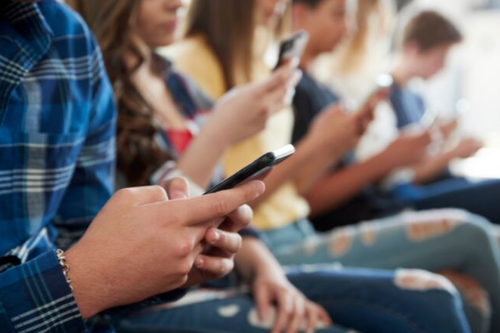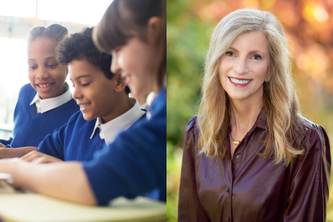
With the start of a new school year right around the corner, many parents may be asking themselves if their kids spent too much time online this summer. But is all social media use bad?
Marguerite Ohrtman, assistant teaching professor in the College of Education and Human Development and president of the Minnesota School Counselor Association, answers questions about kids’ social media use and what parents can do to promote positive experiences online.
Q: What social media sites are “the kids using today?"
Prof. Ohrtman: In a recent study, we explored what social media platforms fourth graders were using. We found that YouTube was the most popular, but Snapchat and Instagram were also used frequently by preadolescents. Students are using these vehicles to connect with others — whether on a larger social scale or one-on-one. Children and teens may not use Facebook like their parents and guardians, but, like adults, they are looking for creative ways to interact with the world around them.
Q: We hear a lot about the negative influences social media. What can kids gain from socializing online?
Prof. Ohrtman: We are finding that students are able to expand their social circle. Elementary school students in our study who use YouTube reported it gives them the ability to expand their social network to individuals with life experiences that might differ from their own (bridging). Those who use Snapchat told us it deepened their one-on-one relationships (bonding). In addition, we found participants were using social media when they were lonely. This suggests that social media helps students connect with others. Lastly, we found no significant difference in emotional intelligence scores between social media users and non-users. This contradicts some media reports that social media could contribute to hyperactivity and peer problems.
Q: What activities/interactions do elementary school-age children typically enjoy participating in online?
Prof. Ohrtman: From our findings, elementary school children enjoy watching videos on YouTube but also want the immediate interaction that Snapchat provides. For many children and adolescents, social media is a way to build an online identity. This identity may be a lot like who they present as in person, but it can also represent who they want to be. Social media can give children a voice in a world where, often times, their voice is not heard.
Q: What tips do you have for parents to ensure kids have positive experiences online?
Prof. Ohrtman: The first step is to know what your children are doing online. Communicate regularly about what sites are being used; show kids what privacy settings are and how to use them; and model appropriate online behavior (e.g., with what you post and “like” online). I think when parents and guardians assume children have good online boundaries, kids can get themselves into negative situations..
Q: How are you using your research to help students in Minnesota schools?
Prof. Ohrtman: For this particular project, we researched elementary students’ perceptions in the Twin Cities, as well as Ankeny, Iowa, schools. We plan to replicate the study in more schools this fall. We shared the results — specifically which social media platforms students are using as well as their potential to positively affect kids’ social capital — with school counselors in those districts. In addition, we presented at the Minnesota School Counselor Association Conference last spring and at the American School Counselor Association Annual Conference this summer. It's our hope that these findings will help school counselors guide kids and their parents in building healthy online relationships.
Marguerite Ohrtman, Ph.D., is an assistant teaching professor in the College of Education and Human Development at the University of Minnesota and president of the Minnesota School Counselors Association. Dr. Ohrtman works in the Department of Educational Psychology’s counseling and student personnel psychology program where she trains and conducts research with future school, higher education and mental health counselors.
About “Talking...with U of M”
“Talking...with U of M” is a resource whereby University of Minnesota faculty answer questions on current and other topics of general interest. Feel free to republish this content. If would like to schedule an interview with the faculty member or have topics you’d like the University of Minnesota to explore for future “Talking...with U of M,” please contact University Public Relations at [email protected].
- Categories:
- Education





